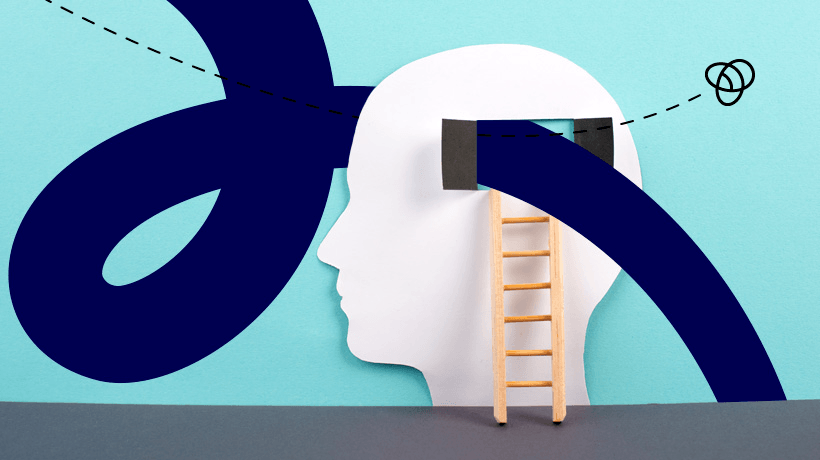8 Educational Psychologists Every eLearning Pro Should Be Familiar With
Educational psychologists make it their life's work to explore the human mind: how it absorbs and assimilates information, and why we are so thirsty for knowledge. These luminaires shed light on learning behaviors, habits, and the inner workings of the brain. As such, their research and theories are worth being noted, especially for eLearning professionals who want to create effective online courses that facilitate long-term knowledge retention.
1. Albert Bandura
Bandura is a noted psychologist who has made significant contributions to the field of education for decades. He is best known for this Social Learning Theory, which suggests that observation is a key component of the learning process. For example, a learner watches a task demo and then repeats the process. They are able to mimic the actions of the presenter in order to achieve the desired outcome.
2. Howard Gardner
Howard Gardner is a developmental psychologist who has penned numerous research papers and books, many of which involve his Multiple Intelligences Theory. This theory states that information process occurs in a variety of different ways. According to Gardner, there are eight primary intelligences: linguistic, logic/mathematical, musical, bodily/kinesthetic, spatial, interpersonal, intrapersonal, and naturalistic. There are also two additional intelligences that may be added to that list, which are pedagogical and existential.
3. Jerome Bruner
Bruner was an American psychologist who specialized in the field of human cognitive psychology. Bruner suggested that people have "generic coding systems" that allow them to analyze and reflect on data in order to arrive at "fruitful predictions" [1]. He also developed the Three Modes of Representation, which are enactive, iconic, and symbolic. These modes relate the storing and processing of information at different ages. For example, humans are able to store symbols, like language, once they reach the age of 7.
4. Jean Piaget
Jean Piaget was a Swiss clinical psychologist who introduced the theory of cognitive development. This pertains to mental models and how children view the world from an educational standpoint. However, his work is still relevant for adult learning audiences, as it deals with mental schemas and information processing. For example, Piaget suggests that a process must occur in order to accumulate knowledge and build on preexisting concepts, such as assimilation or accommodation.
5. John Dewey
Dewey wore many hats: philosopher, reformer, intellectual, and psychologist are among them. He is one of the founding fathers of functional psychology, and is best known for his work in the fields of school and civil society reform. Dewey believed that teaching others was not just a profession, but a lifelong passion. He went on making suggestions on how teachers should interact with their students and what skills they must possess. He also stated that a constant thirst for knowledge was a prerequisite.
6. David Ausubel
Ausubel was a major contributor to the fields of educational psychology and cognitive science. He is best known for his work on "advance organizers," which help to improve knowledge assimilation and retention. According to Ausubel, educators can present new information in a way that makes it easier for the learner to process it. In order for this to occur, the learner must be able to understand the information and the "organizer" must convey the relation between the concepts. As a result, learners have the power to connect new information to pre-existing knowledge.
7. Benjamin Bloom
Benjamin Bloom was an educational psychologist who specialized in educational objectives and the Mastery Learning theory. He suggested that the educational and home setting directly impacted the learner's ability to fulfill their potential. He also developed a taxonomy of educational objectives that involved three domains: affective, psychomotor, and cognitive. This taxonomy is based on prerequisite knowledge and skills. For example, learners must have a solid knowledge base and the necessary skill sets in order to master more complex ideas related to the topic.
8. Robert M. Gagné
Robert Gagné was an educational psychologist who is well-known for the "Conditions of Learning". Gagné suggested that there are five primary categories of learning, which include: intellectual skills, cognitive strategies, motor skills, verbal information, and overall attitude. Furthermore, certain conditions must be present for each type of learning to occur.
These individuals left their mark on the world of educational psychology and gave us a window into the human mind. They offered us the ability to understand our learners on a more profound level, so that we can provide them with effective eLearning experiences. Even though some of them are no longer with us, their research still influences the realm of eLearning.
Are you interested in finding out more about the psychology of learning? Read the article Top 10 Psychology Books That eLearning Professional Should Read to find out which are the 10 psychology books that every eLearning professional should have on their shelves.
References
- Bruner, J. S. (1957). Going beyond the information given. New York: Norton.
Further Reading
Our eLearning Thought Leader Insights page features Q&As that offer insights to dive deeper into ID models, L&D strategies, and educational best practices. Industry experts cover everything from overcoming remote working challenges and expanding the role of L&D to blended learning myths. You can also peruse our eLearning Trailblazers: Industry Thought Leaders Who Pave The Way list to discover thought leaders who have helped make the industry what it is today. The eLearning landscape is constantly changing, but these pros are to help us stay in the know and identify the best approach for eLearning development.







